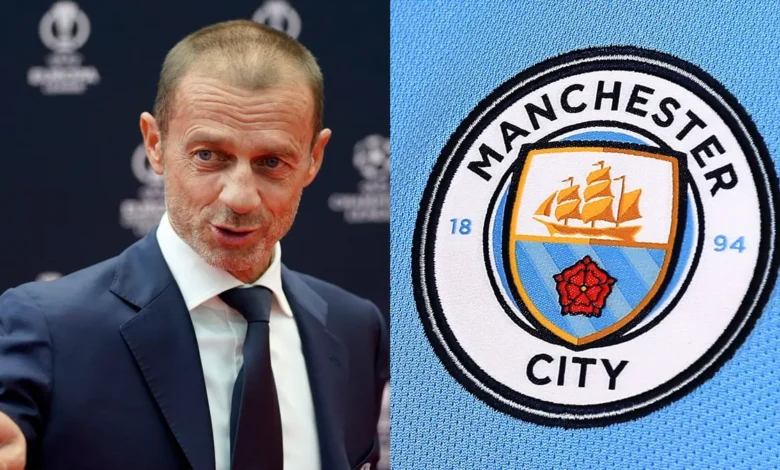Man City FFP: Understanding the Financial Fair Play Saga

Explore the full story of Man City FFP, the rules, controversies, punishments, defenses, and what it all means for the future of Manchester City and European football.
Introduction to Man City FFP
When fans talk about Manchester City, they usually focus on the glittering trophies, Pep Guardiola’s tactical brilliance, and the star-studded squad. But behind the goals and silverware, one issue has followed the club like a shadow: Man City FFP. The Financial Fair Play rules, created by UEFA, were meant to keep clubs spending within their means. For City, though, these regulations have often brought heated debates, lengthy investigations, and headline-grabbing controversies.
This topic isn’t just about account sheets and balance figures; it’s about fairness, football politics, and the future of how the game is run. To understand why Man City FFP has been such a big deal, we need to break down the basics of FFP itself, how City came under the spotlight, and why the saga continues to divide opinion across the football world.
What Financial Fair Play Actually Means
At its heart, Financial Fair Play is UEFA’s attempt to stop clubs from spending money they don’t generate themselves. The idea is simple: football teams should live within their means, not rely on massive debts or unlimited cash injections from wealthy owners. Clubs need to balance spending with revenue, and this is supposed to protect the long-term health of the sport.
For smaller clubs, FFP was seen as a shield against reckless spending that could lead to financial ruin. But for bigger clubs with rich backers, it felt like a leash. Manchester City, with its Abu Dhabi ownership, became the poster child for this debate. Critics argued that City used sponsorship deals linked to their owners to inflate income, while the club strongly defended its position, saying everything was above board and fully audited.
The Beginning of the Man City FFP Drama
The story really took off when leaked documents suggested that City may have disguised investment as sponsorship revenue. This sparked UEFA investigations, leading to a headline-making punishment: a ban from European competitions. For a club aiming to win the Champions League, this was a bombshell.
But City didn’t go down quietly. They appealed to the Court of Arbitration for Sport (CAS), which overturned the ban. While some charges were upheld, the most serious accusations were dismissed or deemed time-barred. To many City fans, this was proof that their club had been unfairly targeted. To rivals, it felt like City had escaped justice thanks to sharp legal work.
Man City’s Defense of FFP Allegations
Manchester City has consistently denied wrongdoing. The club insists that its financial operations are transparent, legitimate, and compliant with both UEFA and domestic regulations. Officials have repeatedly stressed that independent auditors verify their accounts.
From City’s perspective, the FFP issue has become less about finance and more about reputation. They argue that rival clubs and football authorities have tried to block their rise because they challenge the traditional elite. In other words, FFP was used not just to regulate the game but also to maintain the status quo at the top of European football.
Why Man City and FFP Became a Flashpoint
The reason Man City FFP debates are so fiery is because they touch on something bigger than just one club. It’s about the balance of power in football. Traditional giants like Real Madrid, Bayern Munich, and Manchester United built their success over decades. Manchester City, by contrast, rose rapidly thanks to heavy investment after their 2008 takeover.
For supporters of FFP, this investment looked like unfair acceleration. For City fans, it was simply the modern reality of football, no different from wealthy clubs dominating decades earlier. This clash of perspectives turned the Man City FFP case into a global football conversation, with journalists, lawyers, fans, and governing bodies all weighing in.
The Role of UEFA and the Premier League
UEFA isn’t the only governing body City has clashed with. The Premier League has also investigated the club for potential breaches of domestic financial rules. Unlike UEFA, the league doesn’t have to worry about time-barred cases, so the scrutiny has been long-running and intense.
For the Premier League, handling the Man City FFP issue is delicate. On one hand, they want fairness and transparency. On the other, Manchester City is one of their biggest global assets, drawing fans and sponsors worldwide. Punishing such a powerhouse isn’t just a sporting decision—it’s also a commercial one. That’s why the process has been slower, more cautious, and, at times, more politically charged.
Impact on Manchester City’s Reputation
Regardless of the legal outcomes, the FFP saga has left its mark on Manchester City’s image. For rival fans, “Man City FFP” has become shorthand for financial trickery. For neutrals, it raises questions about how fair modern football really is. And for City supporters, it’s a source of frustration—they feel their club’s achievements are constantly undermined by off-field allegations.
Reputation matters in football. Sponsors, players, and even managers consider how a club is perceived. While City’s success on the pitch remains undeniable, the constant association with FFP controversies creates a cloud that can’t easily be ignored.
The Broader Debate: Is FFP Fair?
The Man City FFP story forces us to ask: is Financial Fair Play really fair? Critics argue that FFP actually protects the old elite rather than leveling the playing field. Established giants can rely on massive revenues built up over decades, while newer challengers struggle to compete without heavy initial investment.
Supporters of FFP counter that without rules, clubs could spiral into dangerous debt. They point to past examples of teams collapsing financially, leaving fans heartbroken and competitions distorted. In this sense, Man City’s battles with FFP are part of a much larger debate about how football should be structured in the future.
Man City FFP: The Numbers Game
To fully grasp the complexity, let’s look at a simplified breakdown of the financial side.
| Category | Man City Position | Critics’ View | Supporters’ View |
|---|---|---|---|
| Sponsorship Deals | Strong partnerships, some linked to owners | Inflated revenue | Legitimate business |
| Wage Spending | Among highest in Europe | Unsustainable growth | Reflects elite status |
| Transfers | High investment | Artificial success | Building a global powerhouse |
| Revenue Growth | Rapid increase in a short time | Questionable sources | Modern business model |
This table shows why the arguments are so polarized. The same numbers can look very different depending on perspective.
The Human Side of the Man City FFP Debate
It’s easy to focus on figures, bans, and court rulings, but there’s also a human element here. For fans who have followed Manchester City through decades of struggle, the rise of their club is deeply emotional. Being accused of bending rules can feel like an attack not just on the club but on their personal football identity.
On the other hand, fans of rival clubs see the FFP controversy as proof that City’s success is built on unfair foundations. This fuels online battles, chants in stadiums, and constant debates across football media. In a sense, the Man City FFP issue has become part of the modern fan culture, sparking arguments that go far beyond the pitch.
What the Future Holds for Man City and FFP
The story isn’t over. Investigations continue, rules evolve, and financial scrutiny in football is only growing. Manchester City may eventually face new rulings, or they might continue to clear their name in courts. What’s certain is that FFP will remain a buzzword whenever the club’s success is discussed.
In the bigger picture, we might see reforms to the FFP system itself. UEFA has already introduced new “squad cost rules” to limit wages and transfers as a percentage of revenue. Whether these changes make things fairer or just create new loopholes remains to be seen.
Expert Take on Man City FFP
As an observer of football governance, the Man City FFP case highlights how difficult it is to regulate a sport that has become a multi-billion-pound global industry. The intentions behind FFP are understandable, but enforcement is messy. City’s case shows the challenges of balancing ambition, fairness, and legal complexity in modern football.
The lesson here is that no regulation will please everyone. For Manchester City, the best defense will always be continued success on the pitch. For governing bodies, the challenge is to enforce rules consistently without appearing biased. The debate is far from over, but one thing is clear: Man City FFP will remain a defining topic in football for years to come.
Frequently Asked Questions
What is Man City FFP all about?
It refers to the ongoing debate and investigations into Manchester City’s compliance with Financial Fair Play rules, which are meant to ensure clubs spend within their means.
Did Manchester City ever get banned because of FFP?
They were initially banned from European competitions by UEFA, but this was overturned by the Court of Arbitration for Sport after an appeal.
Why do rival fans talk about Man City FFP so much?
Because it symbolizes the clash between traditional football powers and newer wealthy clubs. To rivals, it suggests unfair financial advantage; to City fans, it feels like unfair targeting.
Is FFP good or bad for football?
Opinions differ. Supporters say it prevents financial chaos, while critics argue it protects the established elite and stifles ambitious clubs like City.
Will Man City face more punishment in the future?
It’s possible, as the Premier League continues to investigate financial matters. However, the outcomes remain uncertain and could take years to resolve.
Conclusion
The Man City FFP saga is about much more than spreadsheets and sponsorships. It’s about fairness, ambition, reputation, and the politics of modern football. Manchester City’s journey has transformed the club into a global giant, but that rise has come with constant scrutiny.
Whether you see City as rule-breakers or pioneers, one thing is undeniable: the debate around FFP has changed football forever. And as long as Manchester City keeps winning, the discussions, controversies, and investigations are unlikely to disappear anytime soon.





